Case 3
- Gum-digger to Typewriting Entrepreneur
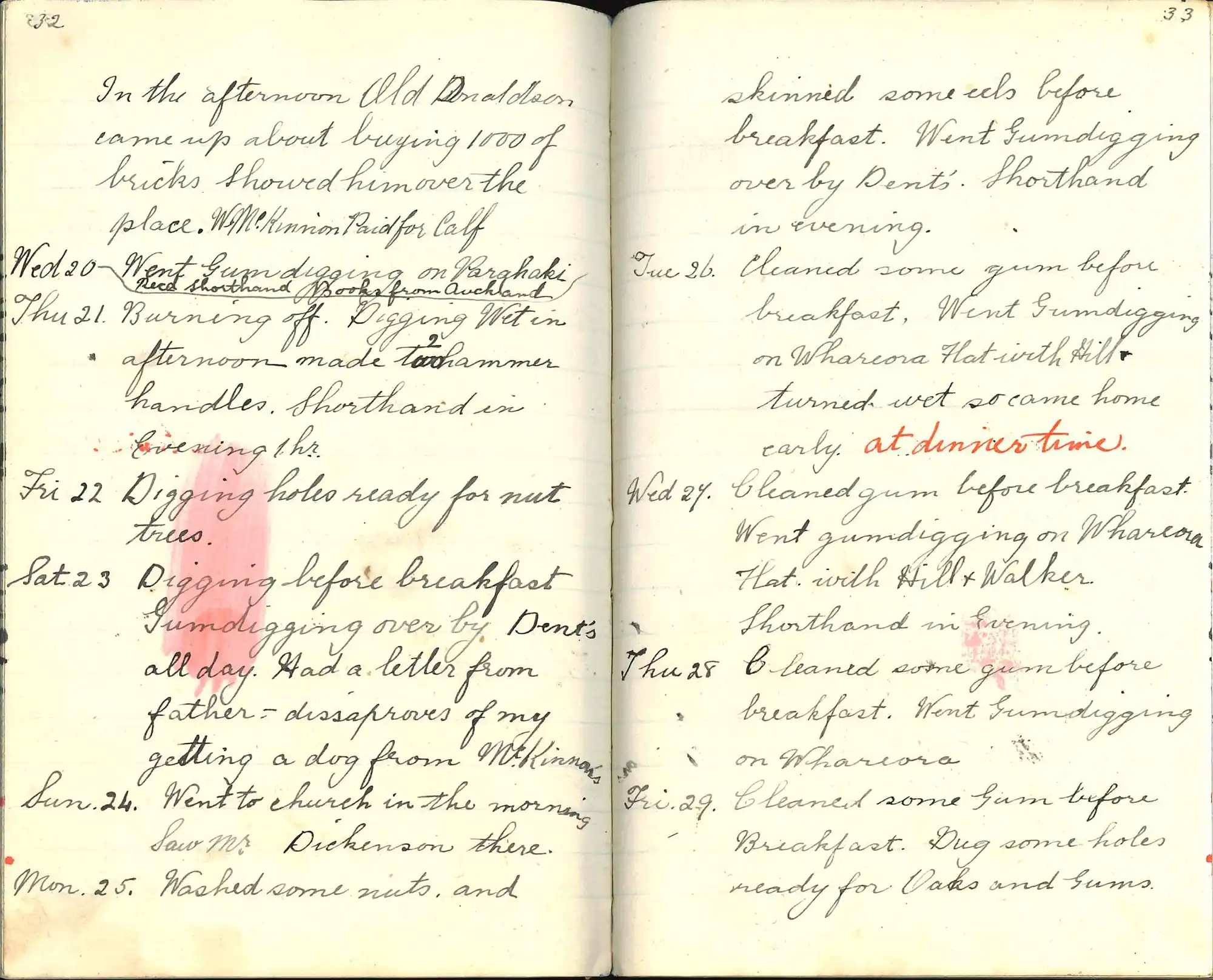
Pages from A.H. Reed’s diary as a gum-digger, April 1892.
After his recovery, Alfred worked from the ages of 15 to 19 in the kauri gumfields of Northland. Displayed here is one of his diaries in which he mentions two of the digging sites at nearby Parahaki and more distant Whareora. A repeated theme is the evening study by textbook of Pitman’s shorthand, the new technique for taking notes at the speed of speech. Alfred also read classic literature such as Dickens in what spare time he had. Recognising the dead-end nature of gum-digging, he hoped for an escape into journalism.
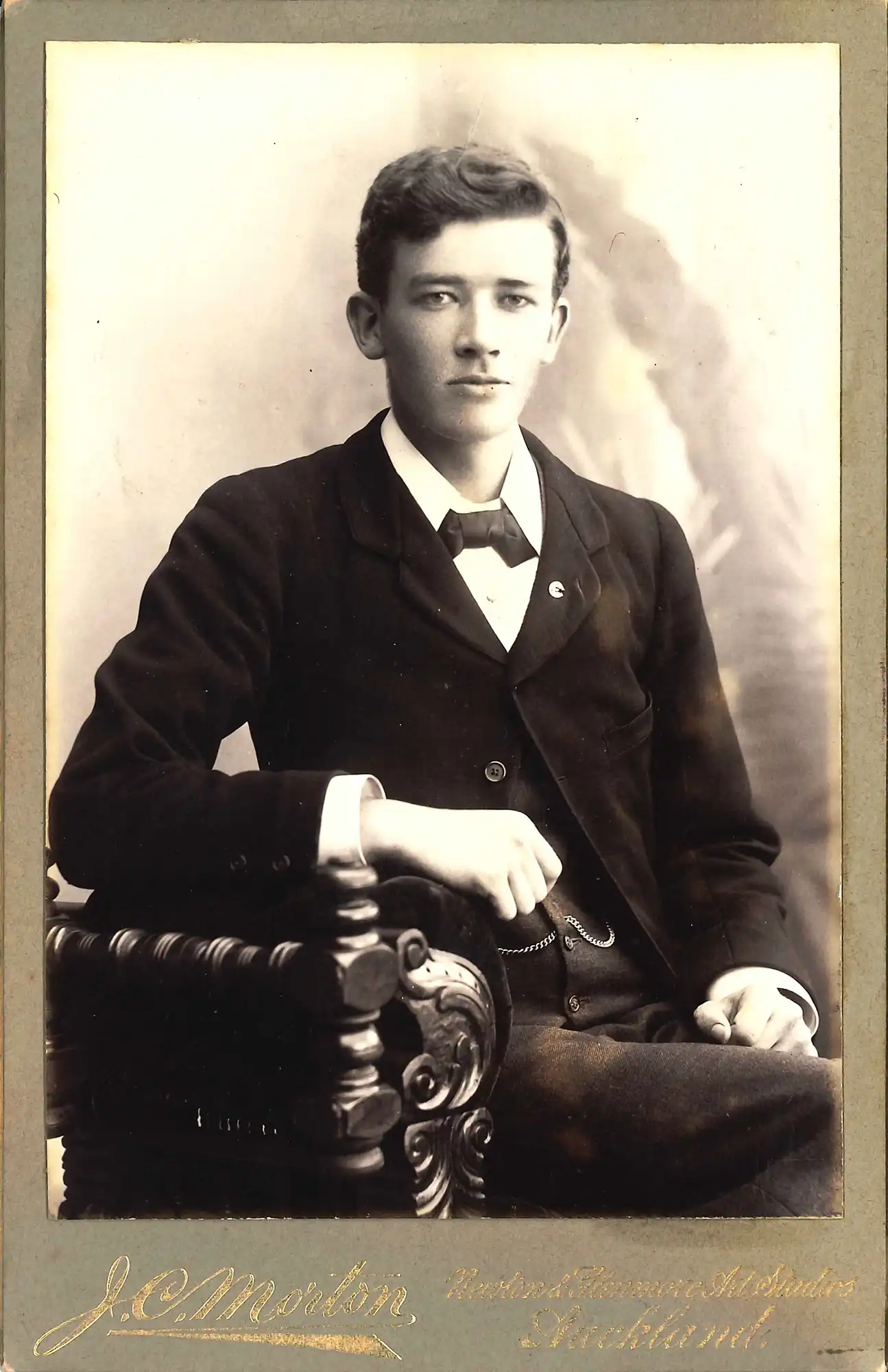
Portrait of Alfred Reed at age 20. Photograph by J.C. Morton.
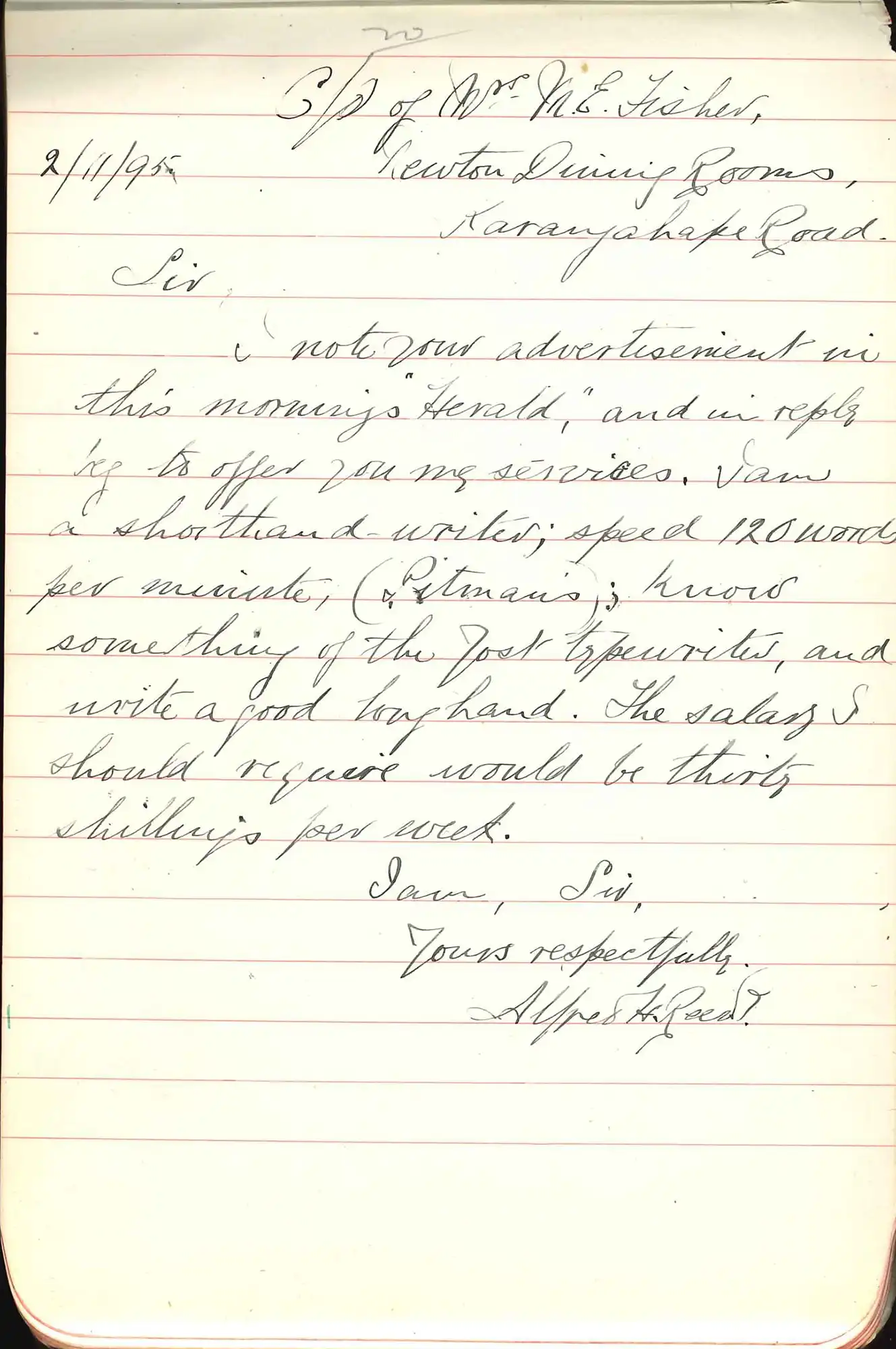
Pages from Alfred Reed’s 1895 diary, containing a draft letter in response to typewriting job application.
Alfred Reed’s diary for 1895 is written almost entirely in Pitman’s shorthand, a habit he had begun in November 1892 while still a gumdigger. Conspicuous in the midst, however, is this draft of the letter dated 11 November 1895 in reply to a typewriting job advertisement in the New Zealand Herald. Years later, in his 1967 Autobiography (p.61), Reed comments on the audacity of his youthful requirement for thirty shillings per week and seems unsurprised that nothing came of such demands. In 1895, Alfred is lodging in Karangahape Road with Mr and Mrs Fisher, the parents of his future wife Isabel.

Pages from Alfred Reed’s 1895 diary, containing a draft letter in response to typewriting job application.
Open image in new window
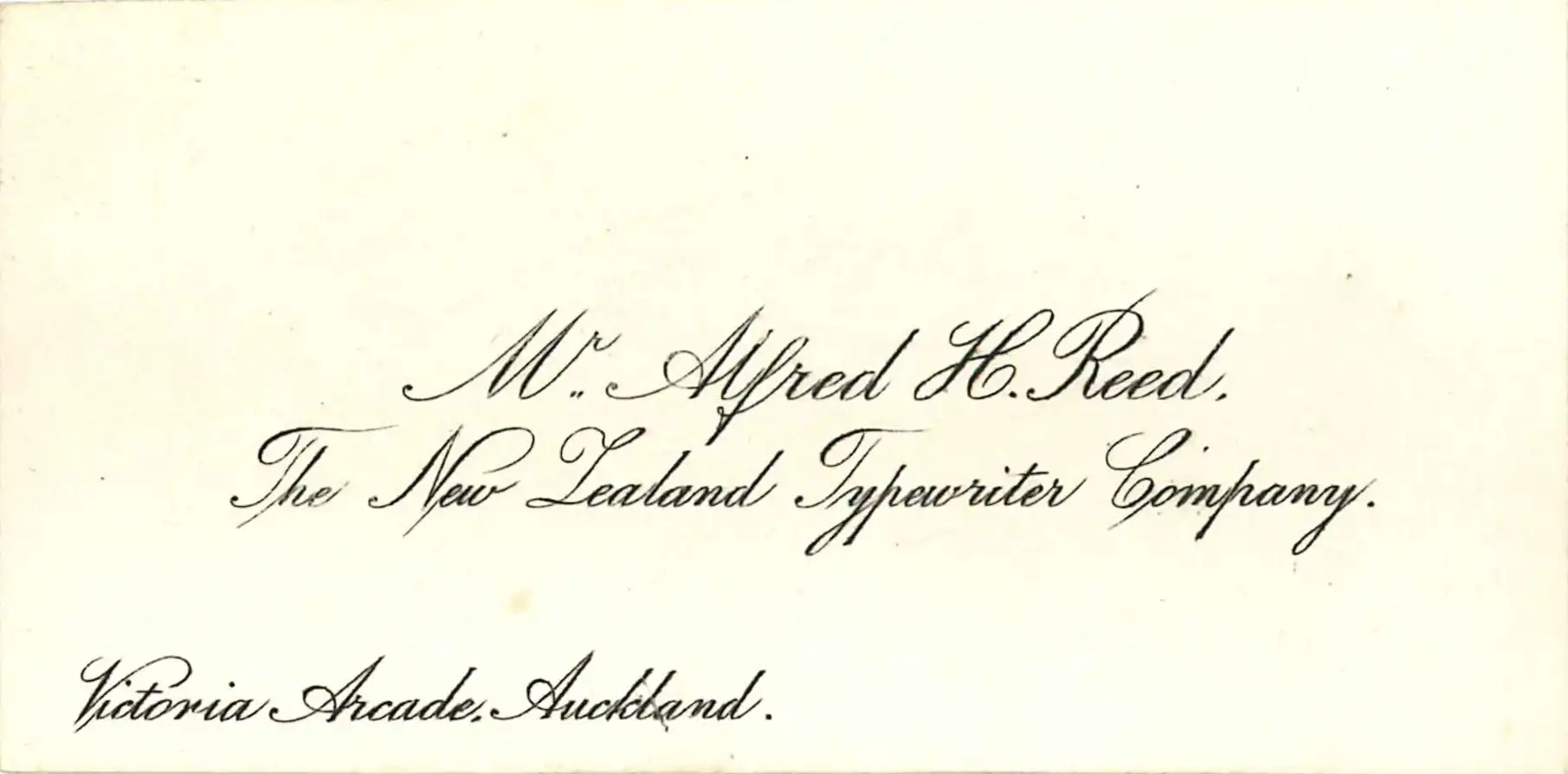
Alfred H. Reed’s business card while working for the N.Z. Typewriter Company, Auckland, ca. 1896.
In late 1895, Reed decided to travel to Auckland in search of work. There he learned to type and on his twentieth birthday, 30 December 1895, began working for the New Zealand Typewriter Company as a shorthand typist at 20 shillings per week. His employer there was a former Dunedin man, Mr T.G. de Renzy, a quirky figure with whom the pious Reed sometimes clashed on ethical issues.

Alfred H. Reed’s business card while working for the N.Z. Typewriter Company, Auckland, ca. 1896.
Open image in new window
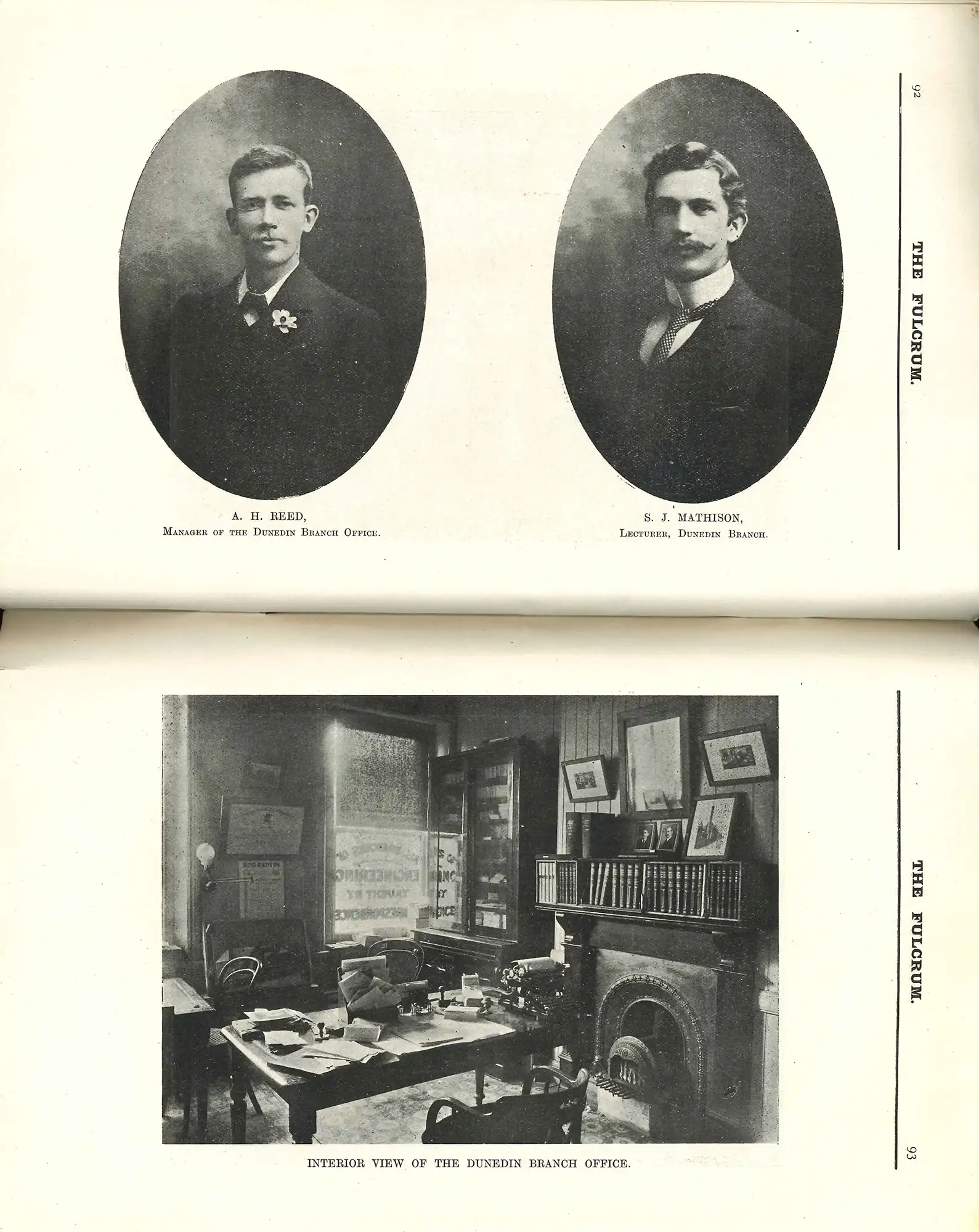
Article from The fulcrum (July-August 1905) about Dunedin branch of NZ Typewriter Company.
Alfred Reed was restless in his Auckland job due to the limited prospects for advancement and was considering Nelson as a location to start his own business when destiny took a different turn. In 1897 he was sent south by Mr de Renzy to start a branch of the typewriter company in Dunedin. After successfully establishing the firm here, Reed in 1902 bought the New Zealand Typewriter Company, which had shrunk to the Dunedin office.
Published by the American School of Correspondence in Illinois, The Fulcrum was a technology journal with a New Zealand edition issued in Auckland by Mr de Renzy. This 1905 issue includes a rare photograph of the interior of the Dunedin branch office in Rattray Street, and a portrait of its manager, now aged about 30 years and known as ‘A.H. Reed.’
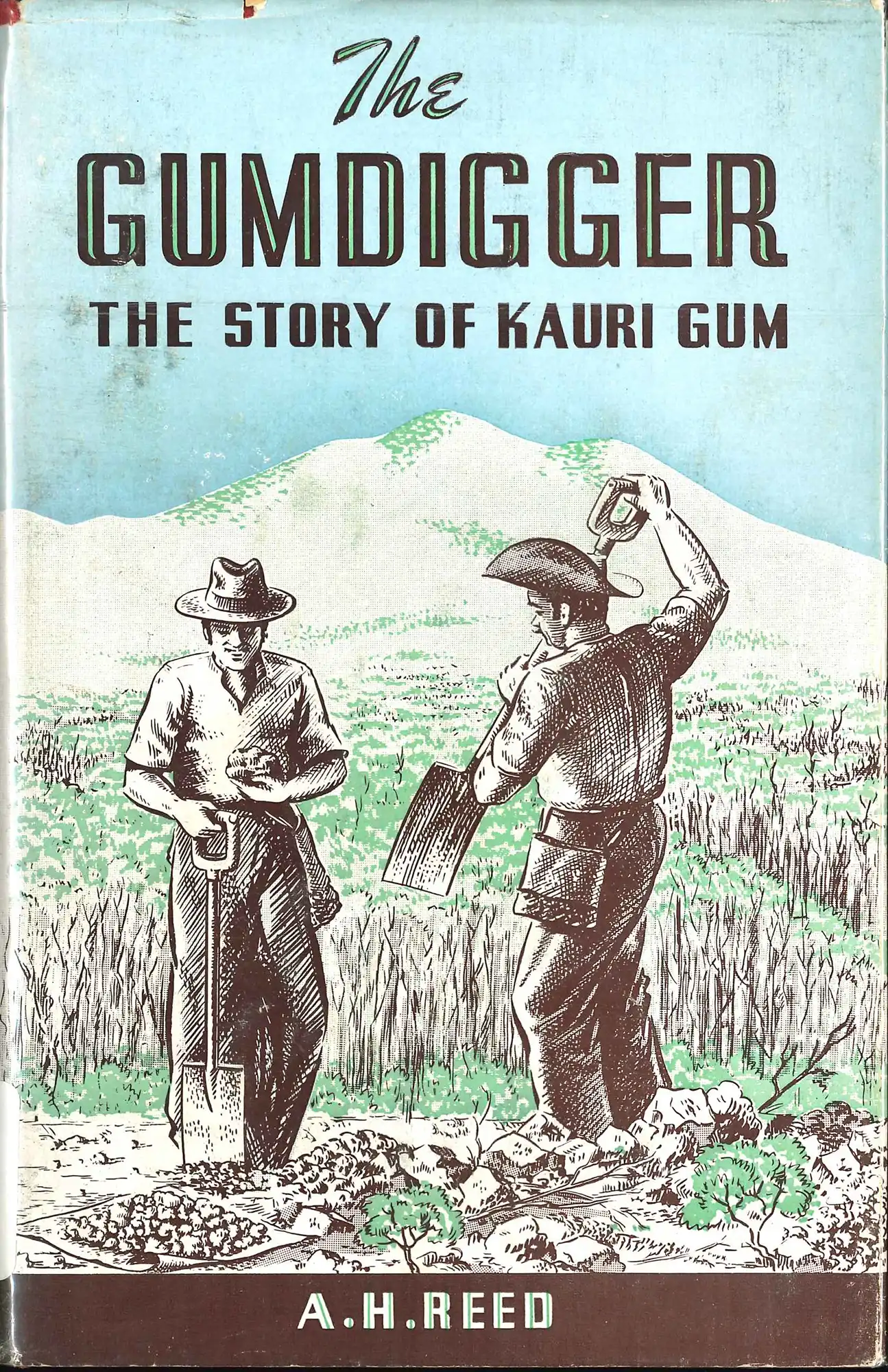
A.H. Reed. The gumdigger: the story of kauri gum. Wellington: Reed, 1948.
Years later, at age 73, Alfred Reed returned to the gumfields of Northland and subsequently wrote a comprehensive account of kauri gum, the gumfields and the gumdiggers. Reed always defended the gumdiggers against a reputation for being morally dissolute, describing them as hard-working and resolute men for whom the gumfields were a stepping-stone to better things.
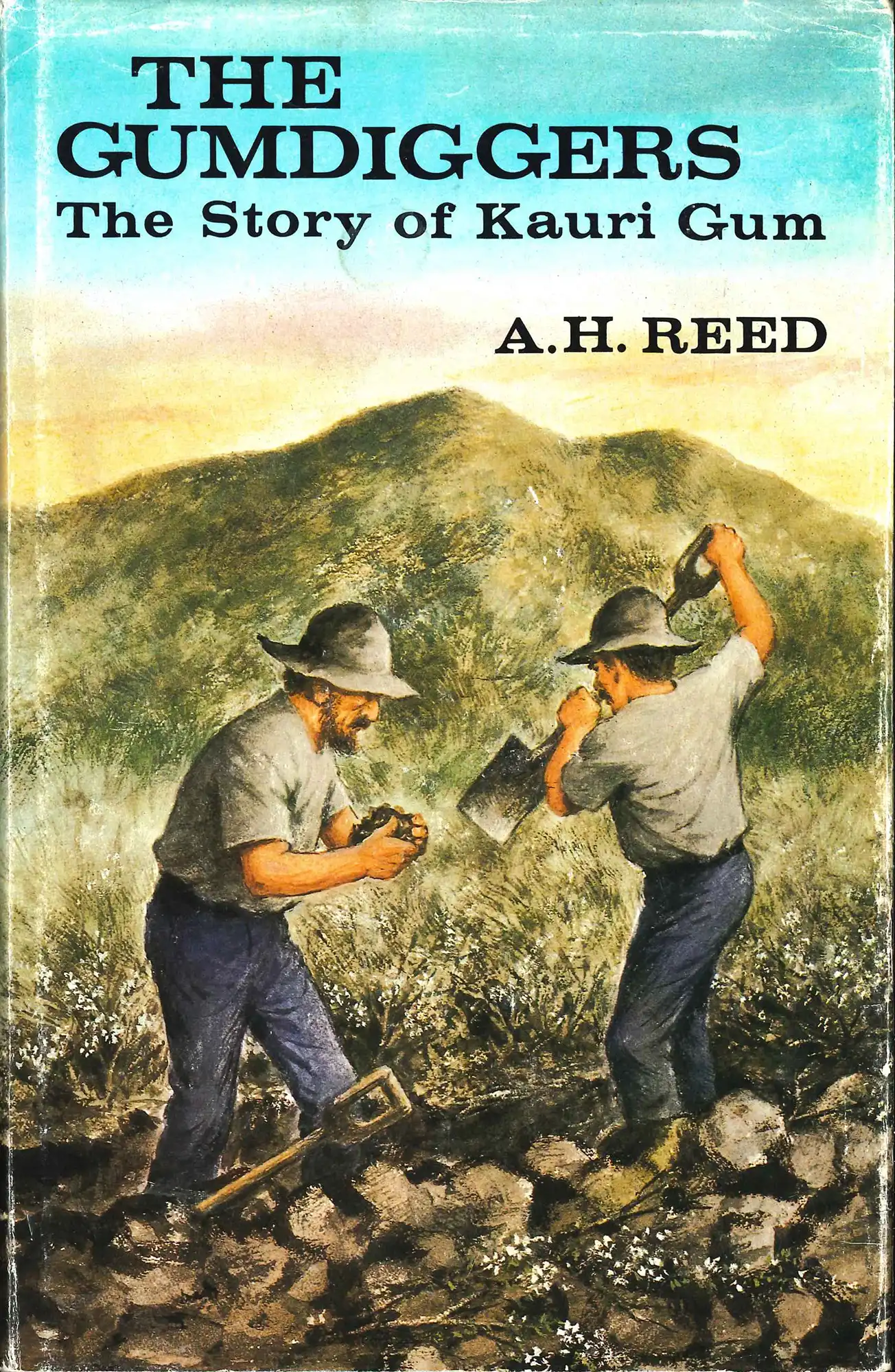
A.H. Reed. The gumdiggers: the story of kauri gum. Wellington: Reed, 1972.
The dust cover illustration of the second edition is based upon a photograph taken by Alfred’s brother Frank ca. 1896 and depicts their father Jamie Reed on the right digging at Parahaki adjacent to the Reed homestead.






